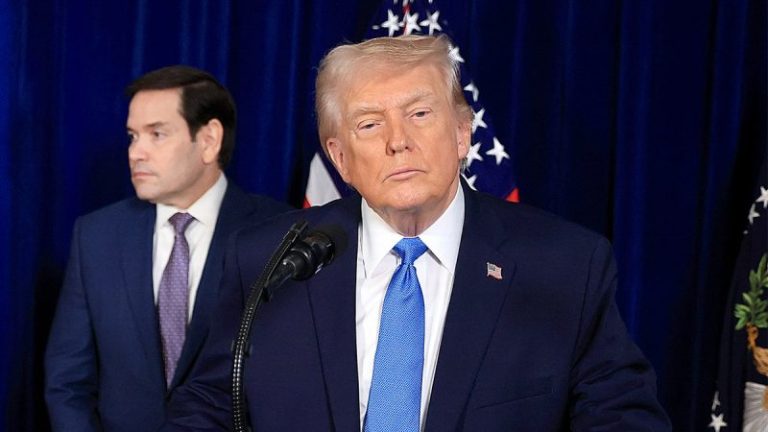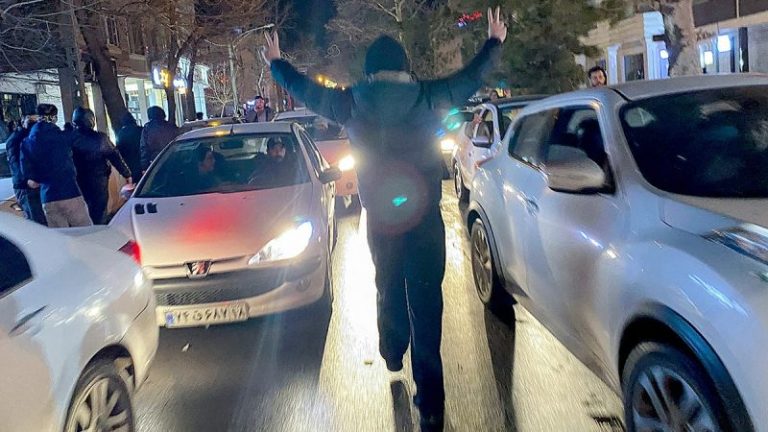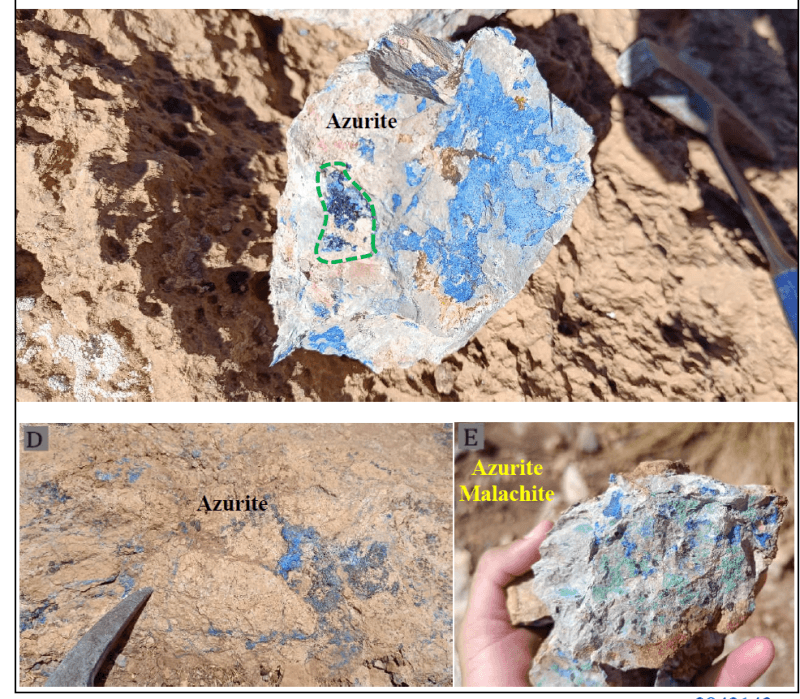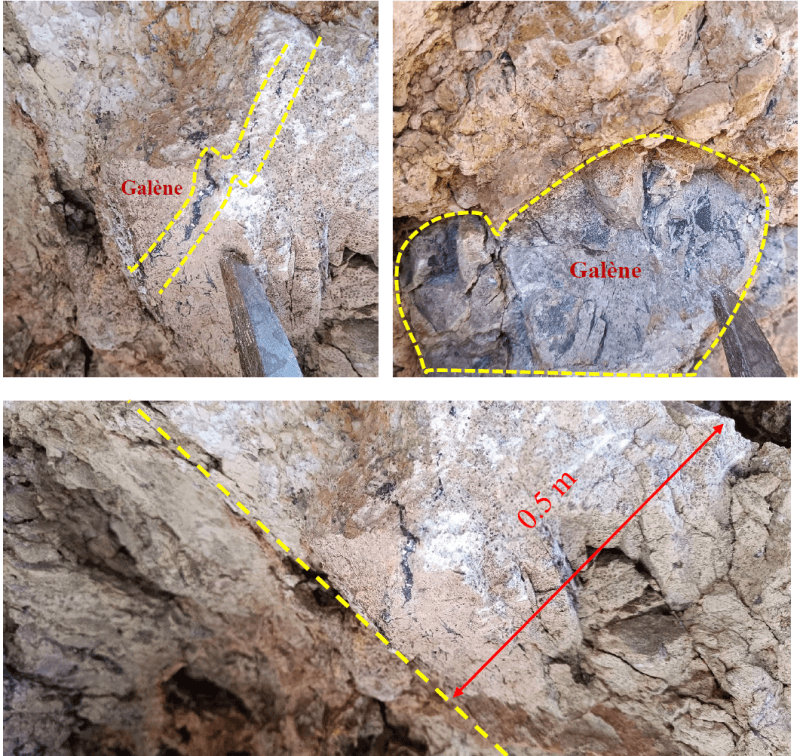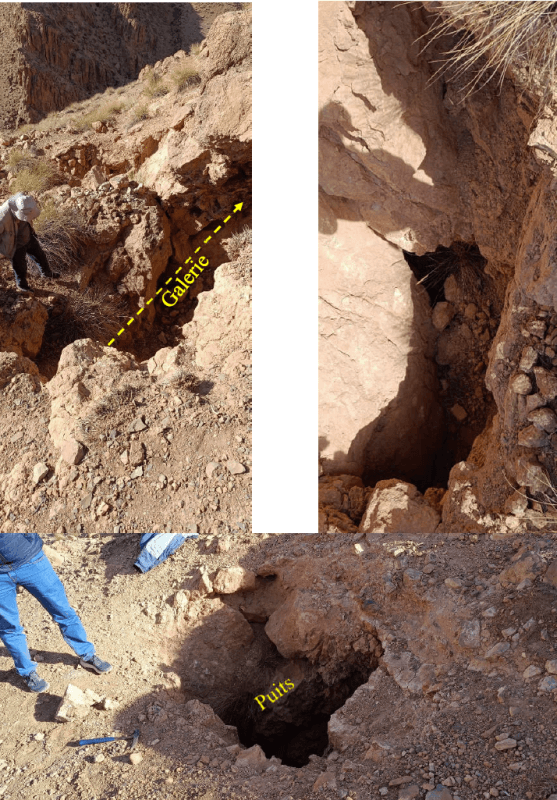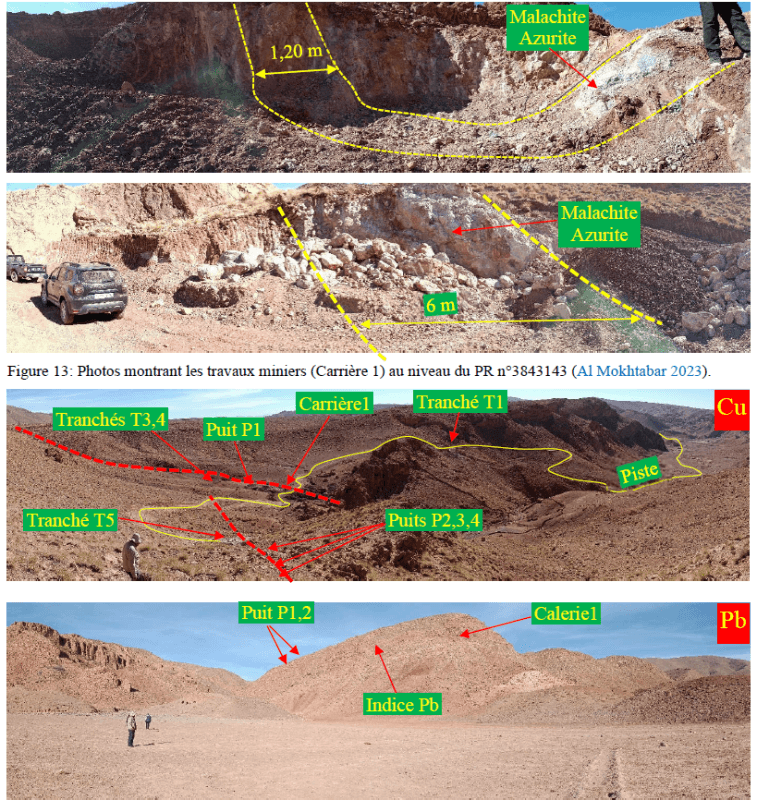Skyharbour Resources Ltd. (TSX-V: SYH) (OTCQX: SYHBF) (Frankfurt: SC1P) (‘Skyharbour’ or the ‘Company’), is pleased to announce that it has acquired by low-cost staking forty new prospective uranium exploration claims in Northern Saskatchewan, increasing Skyharbour’s total land package that it has ownership interest in to 662,887 hectares (1,638,029 acres) across 43 projects. The newly staked claims, which are 100% owned by the Company, add 64,913 hectares (160,403 acres) to Skyharbour’s existing holdings in and around the Athabasca Basin, home to the highest-grade uranium deposits in the world and consistently ranked as a top global mining jurisdiction by the Fraser Institute. While Skyharbour remains focused on advancing its co-flagship Russell Lake project portfolio, recently joint-ventured with Denison Mines, and its 100% owned Moore Project, these new claims will form part of the Company’s prospect generator business through which Skyharbour will seek strategic partners to advance and unlock value from these assets.
Skyharbour’s New Uranium Project Portfolio Map:
https://www.skyharbourltd.com/_resources/images/SKY_SaskProject_Locator_2025-12-16.jpg
List of New Claims:
- Carter North Project – 10 new claims totalling 36,393 ha
- Rover Project – 1 new claim totalling 793 ha
- East Dufferin Project – 1 new claim/project totalling 1,451 ha
- Brustad Project – 1 new claim/project totalling 791 ha
- 914 Project – 4 new claims totalling 2,898 ha
- Elevator Project – 4 new claims totalling 1,742 ha
- Pendleton Project – 1 new claim totalling 1,448 ha
- Yurchison Project – 16 new claims totalling 16,966 ha
- Tarku Project – 1 new claim totalling 2,384 ha
- South Dufferin Project – 1 new claim totalling 49 ha
Summary of Recently Staked Properties:
Carter North:
The newly staked Carter North Project consists of ten mineral claims, nine of which are contiguous, with one standalone claim, totaling 36,393 hectares. The project is located in the western Athabasca Basin, adjacent to Cameco’s North Williams Project, approximately 35 kilometres northeast of NexGen Energy’s Arrow Deposit and 164 kilometres north of the community of La Loche. The project is underlain by approximately 800 to 965 metres of Athabasca Basin sandstones and conglomerates overlying the Tantano Domain. The property covers interpreted extensions of the Patterson Lake, Derkson and Carter conductive corridors and is located along strike to the northeast of the Arrow and Triple R deposits.
Carter North Project Map:
https://www.skyharbourltd.com/_resources/images/SkyHarbour_CarterNorth.jpg
The project area has undergone a variety of historical exploration programs periodically between 1969 and 2023, consisting mostly of airborne radiometrics, EM (Input, GEOTEM, MEGATEM, ZTEM, and Mobile MT), ground gravity surveying, as well as prospecting, soil sampling, lake sediment sampling and boulder sampling. Two drill holes have been completed on the property, only one of which (BL-08-01) intersected the sandstone–basement unconformity. This hole returned 155 ppb Au over 0.5 metres in a sample collected immediately above the basal unconformity within Athabasca sandstone (SMDI 3075). This gold anomaly is considered significant, as gold enrichment can be associated with unconformity-related uranium mineralizing systems in the Athabasca Basin.
In addition, a historical lake sediment geochemical survey completed in 1980 reported a highly anomalous uranium value of 240 ppm U in sample SLB-80-69 (AF 74K02-0013), collected at a reconnaissance scale of approximately one sample per square kilometre, confirming a strong uranium anomaly on the property.
The most recent exploration work conducted on the Carter North property consisted of a MobileMT survey in 2023 by Stallion Uranium, which detected numerous basement conductors on the Carter North property, including trends interpreted as the extensions of the Patterson Lake, Carter, and Derksen trends, which are host to some of the world’s highest-grade uranium deposits to the southwest along trend, including the Arrow and Triple R uranium deposits.
Rover:
The newly staked Rover Project consists of a single claim totalling approximately 793 hectares located approximately 40 kilometres east of Cameco’s McArthur River Mine, 31 kilometers southeast of the Cigar Lake Mine, and 68 kilometers west of the community of Wollaston Lake. Historical exploration extended over a long-time span, from the late 1960’s through the early 1990’s, with most of the work being completed in the 1970’s. The property is located within the Athabasca Basin and is underlain by a shallow cover of Athabasca Group Sandstones, which in turn overly the Paleoproterozoic metasedimentary rocks of the Wollaston Supergroup.
Rover Project Map:
https://www.skyharbourltd.com/_resources/images/SkyHarbour_Rover.jpg
In 1994, Cameco conducted two ground prospectivity surveys on the property, targeting Pb-Zn-Ni anomalies. More recent work included airborne geophysics (VTEM and Horizontal Magnetic Gradiometer surveys) conducted by Phalanx Disposition Ltd. on behalf of Athabasca Uranium Inc. in 2013. In addition, Abasca Minerals and Athabasca Uranium completed a 455 line-kilometer HeliFALCON Gravity survey over two grids on the property. One drill hole (4675-001-79) was completed on the property in 1979, intersecting 133.7m of Athabasca sandstone, with a total depth of 151.5m. Aside from this single hole, the property remains largely untested by diamond drilling.
East Dufferin:
The East Dufferin Project consists of a single newly staked claim totalling 1,451 ha and is located immediately south of the southern margin of the Athabasca Basin in northern Saskatchewan, approximately 4 km west of Skyharbour’s South Dufferin project, which is currently under option to UraEx Resources. The project is underlain by Paleoproterozoic metasedimentary gneisses of the Mudjatik Domain overlying Archean granitoid gneisses and is situated immediately to the east of the Virgin River Shear Zone, which hosts the Centennial Zone uranium deposit approximately 26 km to the north of the East Dufferin project.
East Dufferin Project Map:
https://www.skyharbourltd.com/_resources/images/SkyHarbour_EastDufferin.jpg
Exploration work on the property between 1969 and 2010 included a variety of airborne EM, gravity, magnetic, and radiometric surveys, as well as ground magnetic and EM surveys, surficial geochemical sampling (including lake and stream water, lake sediment and vegetation sampling), prospecting and geological mapping. The most recent work consisting of ZTEM and airborne full tensor gravity (FTG) surveys completed by JNR Resources in 2009 and 2010. Prior exploration identified a broad zone of increased conductivity and moderate magnetic activity associated with a magnetic linear feature on the East Dufferin project, situated between strong EM conductors located just off the property to the north and east.
Brustad Project:
The Brustad project consists of one newly staked mineral claim totaling 791 hectares, located approximately 21 km east of Skyharbour’s South Dufferin property. The property is located just south of the southern Athabasca Basin margin in the Mudjatik Domain of northern Saskatchewan, with the basement rocks underlying the property including Archean granitoid gneisses and subordinate Paleoproterozoic metasedimentary gneisses.
Brustad Project Map:
https://www.skyharbourltd.com/_resources/images/SkyHarbour_Brustad.jpg
Historical exploration on the property includes airborne electromagnetics (AFMAG, MobileMT, GeoTEM, Input), magnetic and radiometric surveys, and limited prospecting, mapping, vegetation, and lake sediment sampling. No drilling has taken place on the project, but recent airborne geophysical surveys identified a north-south trending EM conductor running alongside the western edge of the property adjacent to a NW trending aeromagnetic low.
914 and Elevator Projects:
The 914 and Elevator Projects now comprise a total of thirteen mineral claims forming two contiguous claim blocks, covering 13,785 hectares. The 914 Project consists of seven contiguous claims totaling 4,031 hectares including four newly staked claims totaling 2,898 hectares. The Elevator Project consists of six contiguous claims totaling 9,754 hectares including four newly staked claims totaling 1,742 hectares. Both projects are located 35 to 55 km south of Cameco’s Key Lake Operation. The 914 Project lies 1 km east of Provincial Highway 914, while the Elevator Project is 12 km east of Highway 914, which provides access to the properties from southern Saskatchewan.
914 and Elevator Project Map:
https://www.skyharbourltd.com/_resources/images/SkyHarbour_914.jpg
Geological mapping and prospecting completed on and in the vicinity of the properties indicate that they are underlain by Wollaston Supergroup metasedimentary gneisses and Archean granitic to tonalitic gneisses of the Western Wollaston Domain, a geological setting known for basement-hosted, unconformity-related uranium mineralization elsewhere in the Athabasca Basin.
Extensive exploration was carried out on and around the properties during the 1970’s, including magnetic, gravity, and electromagnetic surveys, geological mapping, prospecting, and boulder and sediment sampling. Modern work has been limited, consisting of partial airborne VTEM coverage, light ground prospecting, and lake sediment sampling. The newly staked claims are positioned along the margins of regional-scale fold structures, with recent airborne magnetic data revealing additional geological complexity not captured in earlier mapping. Multiple uranium and REE showings exist in the surrounding area around the claims. The same basement rocks found on the 914 and Elevator Projects host unconformity-related and pegmatite-hosted uranium, thorium, and REE mineralization, and fault-hosted flake graphite elsewhere in the region.
Pendleton:
The Pendleton Project consists of four non-contiguous mineral claims totalling 5,338 ha including one recently staked claim totalling 1,448 ha, and is located approximately 70 km southeast of Cameco’s Key Lake Operation and 114 km northwest of the community of Southend. The Pendleton project lies along the Needle Falls Shear Zone at the boundary between the eastern Wollaston Domain and the western Peter Lake Domain. It is underlain by the Wollaston Supergroup metasedimentary rocks including psammopelitic, pelitic, and graphitic pelitic gneisses, as well as mylonitic and cataclastic rocks of the Needle Falls Shear zone and Archean granitoid gneisses, diorites, and gabbros of the Johnson River Inlier and Swan River Complex.
Pendleton Project Map:
https://www.skyharbourltd.com/_resources/images/SkyHarbour_Pendleton.jpg
The initial exploration work on the project was conducted in the 1970’s and 1980’s, consisting of airborne magnetic, radiometric, and EM surveys, as well as prospecting and geochemical sampling. Additional modern exploration included an airborne GEOTEM survey in 2004, ground prospecting and geochemical sampling. A single drill hole (PL-003) completed following the 2007 HLEM survey intersected faulted and sheared graphitic pelitic gneiss and returned anomalous concentrations of several pathfinder elements. The project is considered prospective for basement-hosted, unconformity-related uranium deposits, as well as pegmatite-hosted U-Th-REE mineralization and/or sediment-hosted Pb-Zn-Cu mineralization.
Yurchison:
The Yurchison Project has been expanded through the staking of sixteen additional mineral claims totaling 16,966 hectares, increasing the project’s total land package to 35,029 hectares. The expanded project consolidates the former Yurchison and Spence properties into a single land package. The Yurchison Project is located approximately 75 to 85 km south of Cameco’s Rabbit Lake operation, with Highway 905 located within 1 km of the westernmost claims. The project is underlain by Wollaston Supergroup metasedimentary gneisses, including psammopelitic to pelitic gneisses, graphitic pelitic gneisses adjacent to Archean granitic gneisses in the Eastern Wollaston Domain.
Yurchison Project Map:
https://www.skyharbourltd.com/_resources/images/SkyHarbour_Yurchison.jpg
The project area has seen significant historical exploration including airborne electromagnetic, magnetic, and radiometric surveys, as well as ground magnetic, EM, IP, and gravity surveys, prospecting, geological mapping, geochemical sampling, and drilling. The drilling was primarily conducted between the 1960’s and 1980’s with additional work completed in the mid-1990’s and 2000’s. The historical exploration on the eastern side of the property was largely focused on exploring SEDEX-style Pb-Zn mineralization following the discovery of the historic George Lake Pb-Zn Deposit adjacent to the property.
The majority of the work on the property was completed before 2000, with minimal follow-up since, and most of the property remains underexplored. There are several uranium, molybdenum, and thorium showings on the project, which remains highly prospective for both basement-hosted uranium, pegmatite-hosted U-Th-REE, and sediment-hosted Cu-Pb-Zn mineralization. The most recent work on the property included airborne EM (VTEM and VLF-EM), magnetics, and radiometrics surveys flown in 2022 and 2023.
Tarku Project:
The Tarku Project consists of three claims, totalling 8,262 ha, including one newly staked claim covering 2,384 ha, and is located adjacent to Skyharbour’s South Dufferin Project, which is currently under option to UraEx Resources. The property covers the southern extension of the Virgin River Shear Zone, which hosts high-grade uranium mineralization at Cameco’s Dufferin Lake zone, approximately 32 kilometres to the north, with drill results of 1.73% U3O8 over 6.5 metres, and the Centennial deposit, approximately 47 kilometres to the north, which includes historical drill intersections of 8.78% U3O8 over 33.9 metres.
Tarku Project Map:
https://www.skyharbourltd.com/_resources/images/SkyHarbour_Tarku.jpg
Historical exploration on the property includes airborne EM, magnetic, and radiometric surveys, lake water and sediment sampling, prospecting, ground-truthing of anomalies, geological mapping, and diamond drilling. The project offers strong potential for basement-hosted, unconformity-related uranium mineralization along the Virgin River Shear Zone trend.
South Dufferin:
The South Dufferin Project has been expanded through the staking of one additional mineral claim totaling 49 hectares, increasing the project’s total land package to 39,398 hectares across 25 claims. The South Dufferin project is located immediately south of the Athabasca Basin in northern Saskatchewan and covers the southern extension of the Virgin River Shear Zone, which hosts known high-grade uranium mineralization at Cameco’s Dufferin Lake zone approximately 13 kilometres to the north and Cameco’s Centennial deposit approximately 25 kilometres to the north. In October of 2024, Skyharbour entered into an option agreement with a private company, UraEx Resources Inc., whereby UraEx may acquire up to a 100% interest in the Company’s South Dufferin Uranium Project.
South Dufferin Property Map:
https://www.skyharbourltd.com/_resources/images/SkyHarbour_SouthDufferin.jpg
Historical exploration work on South Dufferin consists of airborne EM, magnetic, gravity and radiometric surveys, lake water and sediment sampling, prospecting and ground-truthing of airborne anomalies, geological mapping, and diamond drilling. Some of the historical drill holes intersected elevated uranium with locally anomalous base metal and boron concentrations as well as significant clay alteration.
Exploration potential exists for basement-hosted uranium mineralization associated with the Dufferin Lake fault and parallel faults within the Virgin Lake Shear zone. With numerous mineralized showings to the north of the project, exploration efforts at South Dufferin have advanced the project to a discovery-ready state. The project is drill-ready with several prospective targets warranting follow up work, and most recently underwent diamond drilling by Skyharbour’s partner UraEx in the summer of 2025.
*SMDI refers to the Saskatchewan Mineral Deposits Index and ‘AF’ refers to Saskatchewan Mineral Assessment File.
Qualified Person:
The technical information in this news release has been prepared in accordance with the Canadian regulatory requirements set out in National Instrument 43-101 and reviewed and approved by Serdar Donmez, P.Geo., VP Exploration for Skyharbour as well as a Qualified Person.
About Skyharbour Resources Ltd.:
Skyharbour holds an extensive portfolio of uranium exploration projects in Canada’s Athabasca Basin and is well positioned to benefit from improving uranium market fundamentals with interest in forty-three projects covering over 662,887 hectares (1,638,029 acres) of land. Skyharbour owns a 100% interest in the Moore Uranium Project, which is located 15 kilometres east of Denison’s Wheeler River project and 39 kilometres south of Cameco’s McArthur River uranium mine. Moore is an advanced-stage uranium exploration property with high-grade uranium mineralization at the Maverick Zone highlighted by drill results of up to 6.0% U3O8 over 5.9 metres, including 20.8% U3O8 over 1.5 metres at a vertical depth of 265 metres. Adjacent to Moore, Skyharbour is advancing several uranium properties within the Russell Lake project area with its joint venture partner and large strategic shareholder Denison Mines. Collectively these projects host multiple zones of uranium mineralization across a highly prospective land package with significant exploration upside, and the Company is actively working these assets through exploration and drilling programs.
Skyharbour also has joint ventures with industry leader Orano Canada Inc., Azincourt Energy, and Thunderbird Resources at the Preston, East Preston, and Hook Lake Projects, respectively. The Company also has several active earn-in option partners, including CSE-listed Basin Uranium Corp. at the Mann Lake Uranium Project; TSX-V listed North Shore Uranium at the Falcon Project; UraEx Resources at the South Dufferin and Bolt Projects; Hatchet Uranium at the Highway Project; CSE-listed Mustang Energy at the 914W Project; and TSX-V listed Terra Clean Energy at the South Falcon East Project. In aggregate, Skyharbour has now signed earn-in option agreements with partners that total to potentially over $76 million in partner-funded exploration expenditures and over $42 million in cash and share payments coming into Skyharbour, assuming that these partner companies complete the earn-ins at their respective projects.
Skyharbour’s goal is to maximize shareholder value through new mineral discoveries, committed long-term partnerships, and the advancement of exploration projects in geopolitically favourable jurisdictions.
Skyharbour’s Uranium Project Map in the Athabasca Basin:
https://www.skyharbourltd.com/_resources/images/SKY_SaskProject_Locator_2025-12-16.jpg
To find out more about Skyharbour Resources Ltd. (TSX-V: SYH) visit the Company’s website at www.skyharbourltd.com.
Skyharbour Resources Ltd.
‘Jordan Trimble’
Jordan Trimble
President and CEO
For further information contact myself or:
Nicholas Coltura
Corporate Communications Manager
Skyharbour Resources Ltd.
Telephone: 604-558-5847
Toll Free: 800-567-8181
Facsimile: 604-687-3119
Email: info@skyharbourltd.com
NEITHER THE TSX VENTURE EXCHANGE NOR ITS REGULATION SERVICES PROVIDER ACCEPTS RESPONSIBILITY FOR THE ADEQUACY OR ACCURACY OF THE CONTENT OF THIS NEWS RELEASE.
Forward-Looking Information
This news release contains ‘forward‐looking information or statements’ within the meaning of applicable securities laws, which may include, without limitation, completing ongoing and planned work on its projects including drilling and the expected timing of such work programs, other statements relating to the technical, financial and business prospects of the Company, its projects and other matters. All statements in this news release, other than statements of historical facts, that address events or developments that the Company expects to occur, are forward-looking statements. Although the Company believes the expectations expressed in such forward-looking statements are based on reasonable assumptions, such statements are not guarantees of future performance and actual results may differ materially from those in the forward-looking statements. Such statements and information are based on numerous assumptions regarding present and future business strategies and the environment in which the Company will operate in the future, including the price of uranium, the ability to achieve its goals, that general business and economic conditions will not change in a material adverse manner, that financing will be available if and when needed and on reasonable terms. Such forward-looking information reflects the Company’s views with respect to future events and is subject to risks, uncertainties and assumptions, including the risks and uncertainties relating to the interpretation of exploration results, risks related to the inherent uncertainty of exploration and cost estimates and the potential for unexpected costs and expenses, and those filed under the Company’s profile on SEDAR+ at www.sedarplus.ca. Factors that could cause actual results to differ materially from those in forward looking statements include, but are not limited to, continued availability of capital and financing and general economic, market or business conditions, adverse weather or climate conditions, failure to obtain or maintain all necessary government permits, approvals and authorizations, failure to obtain or maintain community acceptance (including First Nations), decrease in the price of uranium and other metals, increase in costs, litigation, and failure of counterparties to perform their contractual obligations. The Company does not undertake to update forward‐looking statements or forward‐looking information, except as required by law.





